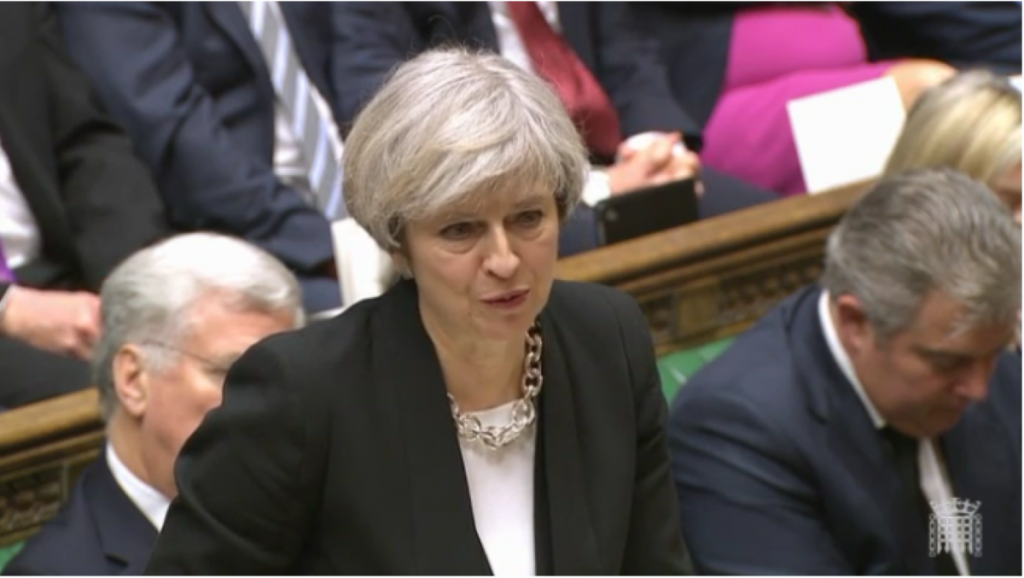By Sian Norris
Two weeks ago I reported on the case of Lola Ilesanmi, a young mother facing deportation to Nigeria where her three-year-old daughter is at risk of FGM. After her MP, Hannah Bardell, raised the issue at Prime Minister’s Questions, Theresa May intervened. As a result, last week the decision to deny Ilesanmi the right to remain was withdrawn by the Home Office.
This is good news – it means the imminent threat to Ilesanmi and her daughter has been removed and she can continue her fight to win indefinite leave to remain. However, her case has highlighted significant issues and failings within the Home Office and our government’s treatment of foreign-born families living and working in the UK.
Ilesanmi has been living in the UK for seven years. After arriving here from Nigeria, she studied in Aberdeen, worked at RBS, and was paying the mortgage on a house in Edinburgh where she lived with her daughter.


But when the Home Office denied Ilesanmi the right to remain, RBS was told they could no longer employ her. With no income, and initially denied recourse to public funds, she faced losing her home and couldn’t afford food for her and her daughter.
This is the reality for far too many families stuck in the UK immigration system. Denied a right to remain, they are legally prevented from working or accessing financial support. This leads to families becoming destitute and reliant on charity. For a woman like Ilesanmi, it means you can go from being a working mum with a job and a mortgage, to overnight being unemployed and unable to feed your child.
With the support of her MP Hannah Bardell, Ilesanmi was eventually able to access public funds and a food bank. But her situation highlights the frightening picture for families living in the UK for years, who are then denied leave to remain by the Home Office. Her case suggests our government needs a rethink on how it supports people stuck in the limbo of our immigration system – unable to work, unable to access support, unable to feed their children.
Ilesanmi’s case not only highlights problems with immigration policy and the right to work or access public funds. The process failings around her case reveal significant issues with the way the Home Office manages applications for leave to remain.
"There’s been many errors," Bardell told me. "Letters going back and forth, being told Lola’s case was a priority, then being told it wasn’t … I hope all of this encourages the Home Office to review their practices. We weren’t looking for anything exceptional. We were just looking for the case to be dealt with on its merits and under the Home Office’s own policies and guidance. The reality is that we shouldn’t have to take a case to PMQs and to the media before due process is done."
I approached the Home Office for comment. Their spokesperson provided a statement saying: "All applications for leave to remain are considered on their individual merits in line with the immigration rules. We are reviewing Ms Ilesanmi’s application."
Thanks to May’s intervention, Ilesanmi is currently allowed to stay in the UK while her application for leave to remain is reviewed. She no longer faces imminent deportation and her daughter is, for now, safe from the threat of FGM.
But her case really highlights the issues within an immigration system that leaves families out of work, destitute and reliant on handouts for food.
As in my original report, it demonstrates hypocrisy where it is (rightly) illegal for families to take a child out of the UK to undergo FGM, but the Home Office is allowed to deport a girl to a country where she is at risk of the abuse.
And it exposes errors within the Home Office that mean due process is not being followed, causing huge distress for individuals.
"FGM is supposed to be a priority for the PM and I understand she’s done a lot of work in this area," Bardell told me. "But it seems to me there are policies and processes that are not properly followed. The Home Office has acknowledged their errors and apologised for the delay in the decision. But they didn't apologise for the distress caused."
Ilesanmi now hopes her case will help ensure no one else has to endure what she has gone through over the last few months. As Bardell explained:
"Lola is that kind of person – she wants her case to mean other people are not subject to this kind of treatment. That from now on, due process is done."
Sian Norris is a writer and feminist activist. She is currently writer-in-residence at Spike Island. Follow her on Twitter here.
The opinions in politics.co.uk's Comment and Analysis section are those of the author and are no reflection of the views of the website or its owners.

